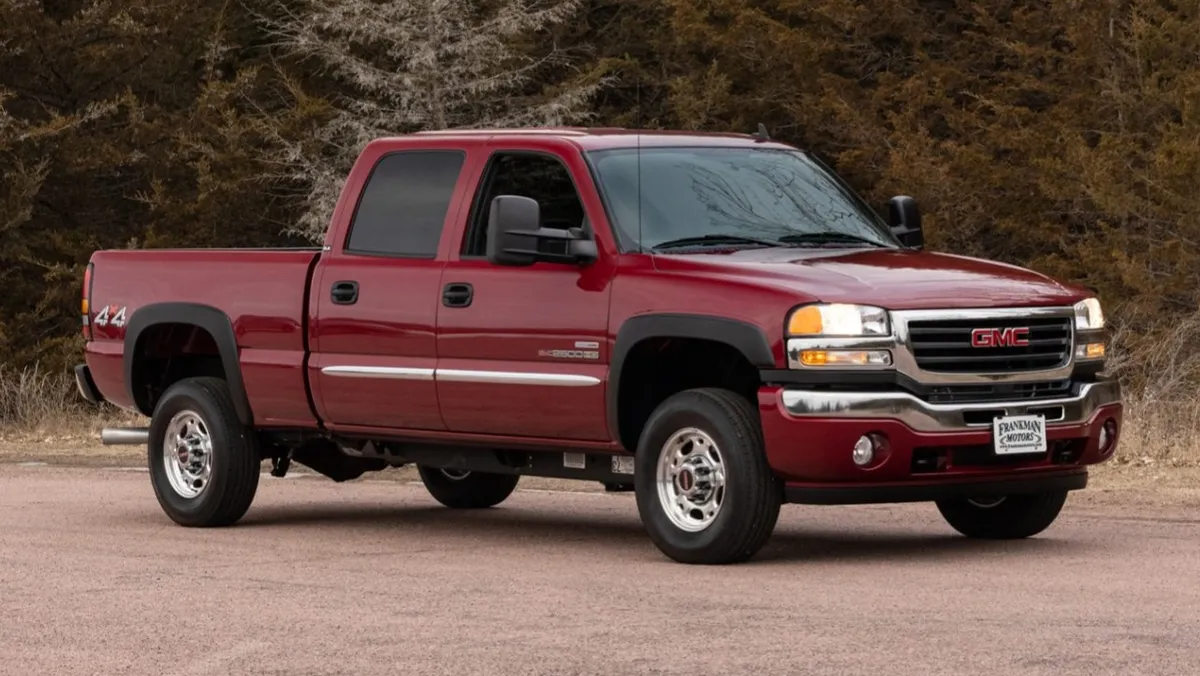Head gasket failure is a notorious issue that can cause serious engine damage and costly repairs in trucks. While no engine is completely immune to head gasket issues, some trucks are much less prone to experiencing this problem.
Certain engine designs, build quality, and maintenance practices contribute to improved durability, making these trucks more reliable over the long haul.
In contrast, some trucks, especially those with certain engine configurations or design flaws, are more susceptible to head gasket failures.
Factors such as overheating, poor cooling system maintenance, and weak gasket materials can cause these trucks to suffer from head gasket failure more frequently.
This article will delve into two categories: trucks that rarely blow head gaskets and those that often do. The first section will highlight five trucks with engines known for their resilience against this issue.
The second section will focus on five trucks that are more prone to head gasket failure and why these problems tend to occur.
Understanding these patterns can help truck owners choose models that offer more peace of mind, particularly for those who rely on their trucks for daily use or heavy-duty tasks.
Also Read: 5 Cars With Interiors That Age Well and 5 That Don’t Hold Up
5 Trucks That Rarely Blow Head Gaskets
Head gasket failures are a common concern for truck owners, but there are several models known for their exceptional durability in this regard.
These trucks, equipped with well-engineered engines and robust cooling systems, are designed to withstand the harsh conditions that can lead to head gasket issues.
The key to their reliability lies in their construction, including high-quality materials, effective sealing techniques, and strong engine designs that promote efficient heat dissipation. When these factors align, they reduce the likelihood of the head gasket failing over time.
The trucks featured in this section are renowned for their longevity and resilience, even when subjected to the rigors of heavy towing, off-roading, or high-mileage driving.
Many of these vehicles also come with well-engineered cooling systems that prevent the engine from overheating—a primary cause of head gasket failure.
Furthermore, regular maintenance, including proper coolant management and keeping an eye on temperature levels, plays a crucial role in extending the life of the head gasket.
By choosing trucks with these reliable engine designs and taking the necessary steps to maintain the cooling system and engine health, owners can significantly reduce the risk of head gasket failure.
The following models stand out for their proven track records of avoiding head gasket issues, offering peace of mind for those who need a workhorse that won’t let them down.
1. Toyota Tundra (5.7L V8 Engine)
The Toyota Tundra, particularly the models equipped with the 5.7L V8 engine, is renowned for its durability and reliability.
This full-size pickup truck has a reputation for being able to handle demanding tasks without succumbing to common engine issues, including head gasket failures.
The 5.7L V8 engine, which powers many Tundras from 2007 onward, is designed with robust materials and an efficient cooling system that effectively minimizes the risk of overheating, one of the leading causes of head gasket failure.
One of the key factors contributing to the Tundra’s strong resistance to head gasket issues is the design of its engine. Toyota has consistently engineered the Tundra’s V8 with a durable, high-quality aluminum alloy construction that helps reduce thermal stress.
The 5.7L V8 engine also has a strong cooling system that includes a high-capacity radiator and an effective water pump to prevent the engine from running too hot.

These features make it much less likely for the engine to experience the extreme temperatures that can lead to gasket failure.
Moreover, Toyota’s reputation for quality control and its dedication to providing excellent maintenance guidelines for owners have also played a role in the truck’s resilience.
Regular oil changes, proper coolant maintenance, and attentive care are crucial, but the Tundra’s engineering provides a solid foundation for long-term engine health.
As a result, the Toyota Tundra 5.7L V8 is a truck that very rarely suffers from head gasket failure, making it a top choice for those seeking reliability and peace of mind in a workhorse vehicle.
2. Honda Ridgeline (3.5L V6 Engine)
The Honda Ridgeline, powered by its 3.5L V6 engine, is one of the most reliable mid-size trucks when it comes to avoiding head gasket failures.
Known for its car-like ride quality and strong reputation for durability, the Ridgeline’s engine is engineered with precision to withstand the stress of regular driving without succumbing to overheating or the issues that typically lead to head gasket failure.
Honda’s commitment to high-quality engine components and robust construction makes this truck a standout when it comes to long-term engine health.
One of the factors contributing to the Ridgeline’s exceptional resistance to head gasket failure is its advanced aluminum alloy engine construction, which promotes effective heat dissipation and minimizes the chances of the engine overheating.
In addition to this, the truck’s cooling system is well-designed, featuring an efficient radiator and thermostat that work together to maintain optimal engine temperatures during both short trips and long hauls.

Unlike some trucks that may experience premature gasket wear due to high-performance demands, the Ridgeline’s 3.5L V6 engine strikes the right balance between power and efficiency, without placing excessive strain on its components.
Additionally, Honda has a reputation for meticulous engineering and quality control, ensuring that each vehicle meets high standards of reliability.
For Ridgeline owners, regular maintenance—like coolant flushes and timely oil changes—can further extend the life of the head gasket. However, the truck’s design and Honda’s engineering make it one of the least likely to experience head gasket failure in its class.
3. Ford F-150 (3.5L EcoBoost V6 Engine)
The Ford F-150, particularly models equipped with the 3.5L EcoBoost V6 engine, has proven to be a truck that rarely experiences head gasket failures.
The 3.5L EcoBoost engine, introduced in the F-150 lineup in 2011, is known for its impressive balance of power and efficiency.
This engine uses twin-turbocharging technology to deliver exceptional performance without putting excessive strain on its internal components, including the head gasket.
One of the key reasons the EcoBoost engine stands out in terms of head gasket longevity is its effective cooling system.
The engine’s cooling system has been optimized to handle the higher temperatures generated by forced induction, ensuring that the engine remains at a safe operating temperature even under heavy loads.
The combination of an efficient turbocharged system and a strong radiator helps maintain this balance, preventing the engine from overheating—a primary cause of head gasket failure.

Additionally, Ford has made significant improvements in the durability of the EcoBoost engine’s components, including the use of high-quality gaskets and seals. This has resulted in a reduced risk of head gasket leaks or failures over time.
The truck’s 3.5L EcoBoost engine has been praised for its low maintenance needs, and when properly maintained, it provides many years of reliable service without head gasket problems.
Regular maintenance such as checking coolant levels, using high-quality oil, and ensuring the engine is not overheated will further protect against any potential issues.
Overall, the Ford F-150 with the 3.5L EcoBoost engine is one of the most dependable trucks for head gasket longevity.
4. Ram 1500 (5.7L HEMI V8 Engine)
The Ram 1500 equipped with the 5.7L HEMI V8 engine has earned a reputation for being a workhorse that rarely suffers from head gasket failure.
This iconic engine is known for its power, durability, and longevity, and it has been a favorite among truck enthusiasts for many years.
Ram’s 5.7L HEMI V8 engine is engineered with a solid foundation that ensures its resilience to issues like head gasket failure, making it an excellent choice for truck owners who need reliability under heavy loads.
One of the reasons the 5.7L HEMI engine has fewer head gasket issues is due to its robust design. The engine’s high-quality materials, including its aluminum alloy heads and iron block, provide superior heat dissipation and thermal strength.
The effective cooling system, including a large-capacity radiator and heavy-duty water pump, ensures the engine operates at optimal temperatures, preventing overheating—a leading cause of head gasket failure.

Furthermore, the HEMI engine benefits from a well-designed sealing system, which enhances the overall durability of the engine.
The combination of strong internal components and a carefully engineered cooling system allows the 5.7L HEMI engine to handle demanding tasks like towing and hauling without placing undue stress on the head gasket.
As a result, the Ram 1500 with the 5.7L HEMI V8 is a truck that very rarely faces head gasket issues.
To ensure longevity, regular maintenance—such as keeping an eye on coolant levels and performing oil changes on schedule—is essential, but overall, this engine is built to last.
5. Chevrolet Silverado 1500 (5.3L V8 Engine)
The Chevrolet Silverado 1500, particularly the models equipped with the 5.3L V8 engine, is another excellent example of a truck that rarely experiences head gasket failures. This engine is well-regarded for its combination of power, efficiency, and longevity.
Since its introduction, the 5.3L V8 has become a staple in the Silverado lineup, known for its strong performance and remarkable reliability over the long term.
One of the key factors behind the 5.3L V8’s resistance to head gasket problems is its high-quality construction.
The engine features a robust iron block and aluminum heads, which are engineered to withstand extreme temperatures without compromising the integrity of the head gasket.
The Silverado’s cooling system is also designed to keep the engine within safe operating temperatures, minimizing the risk of overheating, which is a common cause of gasket failure.
The Silverado 1500’s 5.3L V8 engine benefits from a well-tested design that has proven to withstand the test of time. Many owners report that, when properly maintained, the engine can easily reach high mileage without showing signs of significant head gasket wear.

The truck’s reliable sealing system and the durable materials used in its construction further enhance its resistance to common engine issues like head gasket leaks.
Regular maintenance, including monitoring coolant levels, using high-quality motor oil, and ensuring the radiator system is functioning optimally, will further reduce the likelihood of gasket failure.
Overall, the Chevrolet Silverado 1500 with the 5.3L V8 is a truck that offers excellent long-term reliability and is known for rarely experiencing head gasket issues.
5 Trucks That Often Blow Head Gaskets
While some trucks are engineered for longevity and reliability, others, unfortunately, are more prone to head gasket failures.
These issues can be exacerbated by factors like engine design flaws, overheating, and poor maintenance practices. When a truck is susceptible to head gasket failure, it can lead to a cascade of engine problems, from coolant leaks to severe engine damage.
In this section, we will explore five trucks that have garnered reputations for frequently experiencing head gasket issues.
Many of the trucks listed here are known for their powerful engines and high performance, but their design or cooling systems may have weaknesses that increase the likelihood of head gasket failure.
Whether it’s a flaw in the engine materials, a weak point in the gasket design, or an inefficient cooling system, these trucks are more prone to experiencing the overheating conditions that can blow a head gasket.
In some cases, regular maintenance can mitigate the risks, but owners of these trucks often report issues that require costly repairs.
Understanding these common problems and the models that face them can help potential buyers make informed decisions. Additionally, it provides current owners with insights into what to look for in order to prevent catastrophic engine failure.
By knowing which trucks have a history of frequent head gasket issues, drivers can take proactive measures to protect their engines from these costly failures.
In the following sections, we will highlight five trucks that frequently experience head gasket problems, explain why these issues occur, and explore steps to prevent or address them.
1. Subaru Outback (2.5L Boxer Engine)
While not traditionally considered a truck in the strictest sense, the Subaru Outback, especially in its larger trim levels with the 2.5L Boxer engine, is often used for hauling and is categorized among more rugged utility vehicles.
Unfortunately, this model, particularly the early 2000s to mid-2010s versions, is known for a persistent issue with head gasket failures.
The root cause of the problem lies in the unique horizontally opposed “Boxer” engine design, which can cause uneven stress on the head gasket over time, particularly in models with higher mileage or poor cooling system maintenance.
The 2.5L Boxer engine’s design, while known for its low center of gravity and good balance, creates a layout that increases the difficulty of cooling. The compact nature of the engine also results in tighter spaces, which can put added pressure on the head gasket.
This combined with a tendency for some models to overheat, especially in hotter climates or under heavy loads, makes the Outback prone to these types of failures.
In some cases, improper coolant maintenance or a lack of timely oil changes can exacerbate the issue, as the engine’s head gasket relies heavily on proper sealing and temperature regulation.

Owners have reported frequent gasket issues after the engine has exceeded 100,000 miles, requiring costly repairs and replacements.
For Subaru Outback owners, ensuring proper maintenance of the cooling system, including regular coolant flushes, is crucial in preventing the onset of head gasket failure.
Despite this known weakness, the Outback remains a popular choice for outdoor enthusiasts, but it does come with an elevated risk of gasket issues in some model years.
2. BMW X5 (4.8L V8 Engine)
The BMW X5, particularly models equipped with the 4.8L V8 engine, is a luxury SUV that blends high performance with advanced engineering. However, this powerful engine has a history of head gasket failures, which can lead to significant and costly repairs.
One of the main issues with the 4.8L V8 engine lies in the design and materials of the head gasket itself.
These trucks are known for using a gasket material that can degrade more quickly under prolonged stress and high temperatures, particularly when the engine is pushed hard or not properly maintained.
The X5’s 4.8L V8 engine produces significant power, which is fantastic for performance but can also place a lot of strain on the head gasket.
Over time, the engine’s high operating temperatures and pressures can result in the head gasket becoming compromised, leading to coolant leaks and the potential for catastrophic engine damage.

The cooling system, though generally effective, can sometimes be overworked in these engines, especially if there’s a fault in the thermostat, radiator, or coolant hoses.
In addition, many owners report that the gaskets used in the 4.8L V8 engine are not as durable as expected, especially as the vehicle ages.
Without timely maintenance, such as regular coolant flushes and ensuring the engine does not overheat, the head gasket failure rate in the X5 can be high.
This issue has led to increased repair costs for owners, often involving a complete engine overhaul to fix the gasket problem.
For BMW X5 owners, it’s essential to maintain the cooling system in good condition and monitor the engine for any signs of overheating.
Regular maintenance can help mitigate the risk, but it’s important to be aware that this particular engine is more prone to head gasket failure than others.
3. Ford 6.0L Power Stroke Diesel (2003-2007)
The 6.0L Power Stroke Diesel engine, found in Ford Super Duty trucks between 2003 and 2007, has earned a reputation for being prone to head gasket failure.
While this engine is known for its impressive towing capacity and overall power, it suffers from a range of design and reliability issues that make it more susceptible to head gasket problems.
The most notable issue is related to the engine’s cooling system, which was not always up to the task of handling the high thermal demands of this powerful diesel engine.
The 6.0L Power Stroke is known for having weak head bolts that can fail under pressure, leading to a loss of compression and coolant leaks around the head gasket.
Additionally, the engine’s turbocharger system can put a strain on the cooling system, often resulting in overheating, which is a major contributor to head gasket failure.

The engine’s EGR (Exhaust Gas Recirculation) system can also become clogged, causing higher combustion temperatures and increasing the likelihood of head gasket issues.
Another contributing factor to head gasket failures in the 6.0L Power Stroke is the early versions of the engine, which did not have the improved gaskets or upgraded components that later models received.
These early models were more prone to head gasket leaks, which would lead to expensive repairs and, in some cases, engine replacements.
For Ford Super Duty owners with a 6.0L Power Stroke, regular maintenance is crucial. It’s important to monitor coolant levels and watch for signs of overheating.
Many owners of these trucks opt to install upgraded head bolts, gaskets, and cooling system components to mitigate the risk of head gasket failure.
4. Dodge Ram 2500/3500 (5.9L Cummins Diesel – Early Models)
The Dodge Ram 2500 and 3500, especially those equipped with the 5.9L Cummins Diesel engine from early 2000s models, are powerful work trucks renowned for their towing capability and overall performance.
However, these trucks, particularly from the years 2000 to 2007, are known for having a relatively high incidence of head gasket failure.
While the Cummins 5.9L engine is durable and capable, its susceptibility to head gasket issues is largely attributed to two factors: excessive cylinder pressure and the engine’s design.
The 5.9L Cummins Diesel engine generates significant power, which can place considerable strain on the head gasket over time. In early models, the head bolts were not as robust as they should have been, and the gasket material could wear down under the pressure.
This combination of high torque and suboptimal gasket materials can lead to head gasket failure, especially when the engine is subjected to heavy towing or long periods of high engine load.

Furthermore, the Cummins Diesel engine’s high heat output, combined with an often inadequate cooling system in early model years, makes it more prone to overheating, which is a significant contributor to head gasket failure.
Overheating can cause the metal components of the engine to expand and contract, leading to warping and eventual gasket failure.
Regular maintenance is key to mitigating these issues, and many owners of the early Ram 2500/3500 with the 5.9L Cummins engine opt to upgrade to stronger head bolts and gaskets to prevent these failures.
Additionally, keeping the cooling system in excellent condition can significantly reduce the risk of overheating.
5. GMC Sierra 2500HD (6.6L Duramax Diesel – 2001-2007)
The GMC Sierra 2500HD equipped with the 6.6L Duramax Diesel engine, particularly in the 2001-2007 model years, is another truck that is often prone to head gasket failure.
While the Duramax Diesel engine is highly regarded for its towing capacity and performance, it has had its share of reliability issues, especially in these earlier model years.
The most common problem is related to the engine’s head gaskets, which can fail prematurely due to a combination of high operating temperatures, excessive engine load, and sometimes inadequate gasket design.
The 6.6L Duramax engine is known to run hot, especially under heavy towing conditions, which can cause the head gaskets to fail over time. The high heat can lead to warping of the engine’s cylinder heads, which in turn causes the gaskets to lose their seal.

Additionally, the turbocharged nature of the Duramax engine, which generates significant exhaust pressure, can also contribute to higher-than-normal engine temperatures, further increasing the likelihood of head gasket failure.
Another factor contributing to the head gasket issues is the engine’s design, which, while powerful, has been known to put significant stress on certain components over time.
The original gaskets used in the 6.6L Duramax engine were not as durable as needed to handle the stress and heat of the turbocharged system, leading to frequent failures.
For GMC Sierra 2500HD owners, regular maintenance is essential to prolong the life of the engine and prevent head gasket failure.
Keeping the cooling system in top condition, ensuring the engine does not overheat, and performing timely coolant flushes can help mitigate the risk.
Some owners have also opted to upgrade to aftermarket, high-performance gaskets and head bolts to reduce the likelihood of failure.
When it comes to choosing a truck, the potential for head gasket failure is an important consideration, especially for those who rely on their vehicles for heavy-duty work, towing, or long-distance travel.
The difference between trucks that rarely experience head gasket issues and those that are prone to them can have a significant impact on long-term reliability and repair costs.
Trucks like the Ford F-150 with the 3.5L EcoBoost V6, Ram 1500 with the 5.7L HEMI V8, and Chevrolet Silverado 1500 with the 5.3L V8 have proven themselves as reliable workhorses that rarely suffer from head gasket failure.
These models are engineered with durable cooling systems, high-quality materials, and thoughtful design, all of which contribute to their ability to withstand the pressures of heavy loads and high temperatures.
Regular maintenance, such as ensuring proper coolant levels and monitoring the engine for signs of overheating, can further extend the life of the head gasket in these trucks.
On the other hand, trucks like the Ford 6.0L Power Stroke Diesel, Dodge Ram 2500/3500 with the 5.9L Cummins Diesel, and GMC Sierra 2500HD with the 6.6L Duramax Diesel highlight the challenges that certain engine designs and components can face.
These trucks, while capable and powerful, often experience head gasket failures due to factors like excessive engine heat, inadequate cooling systems, and weak gasket materials.
For owners of these vehicles, proactive steps such as upgrading cooling systems, using high-quality gaskets, and staying on top of maintenance are essential to mitigating the risk of head gasket problems.
Ultimately, understanding the head gasket performance of different trucks can save owners from costly repairs and frustrating breakdowns.
Whether you’re looking for a reliable truck that can go the distance without head gasket issues or a vehicle that may require more frequent attention, making an informed decision will ensure a longer-lasting, smoother driving experience.
Also Read: 5 Cars That Are Better With Age and 5 That Only Decline

